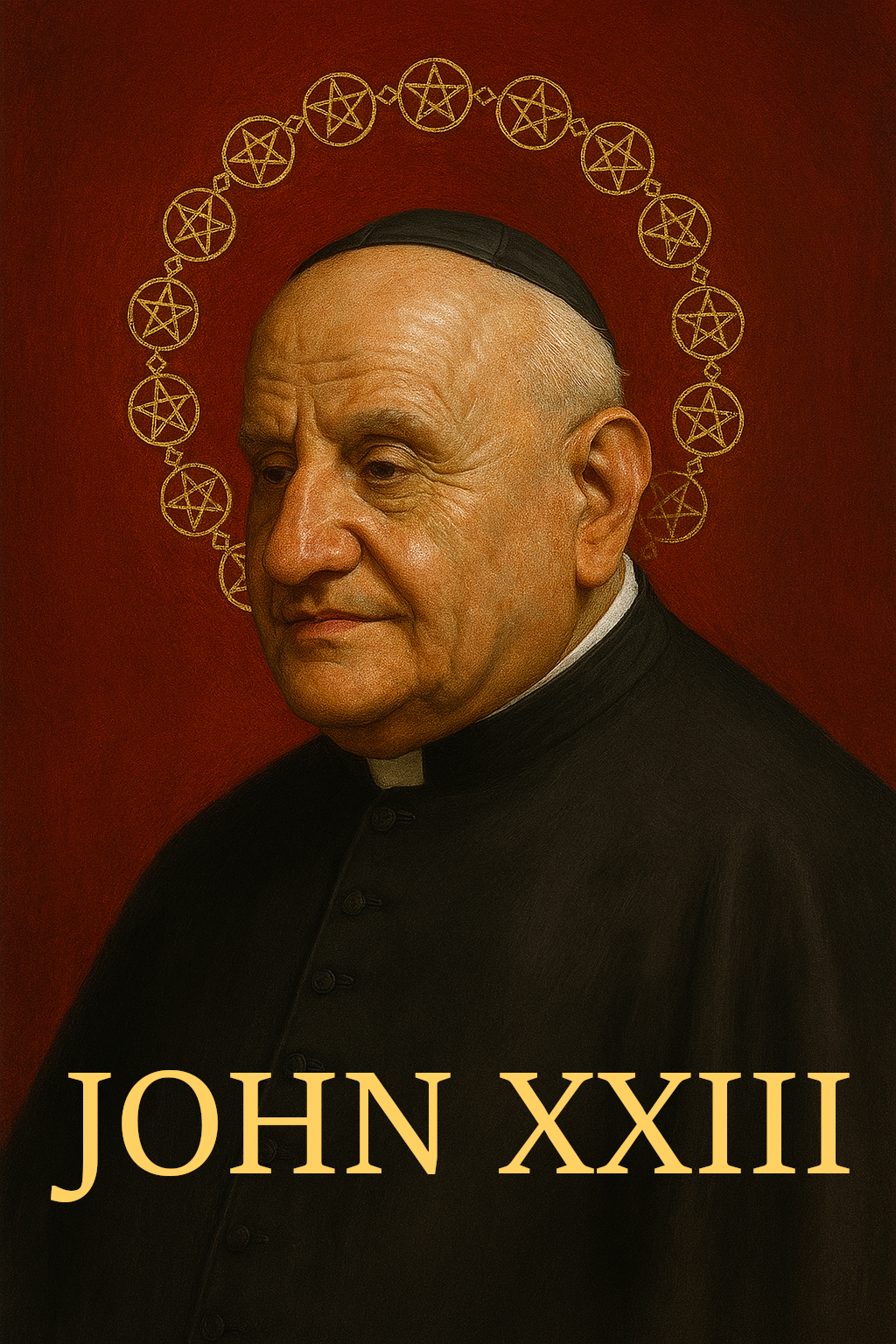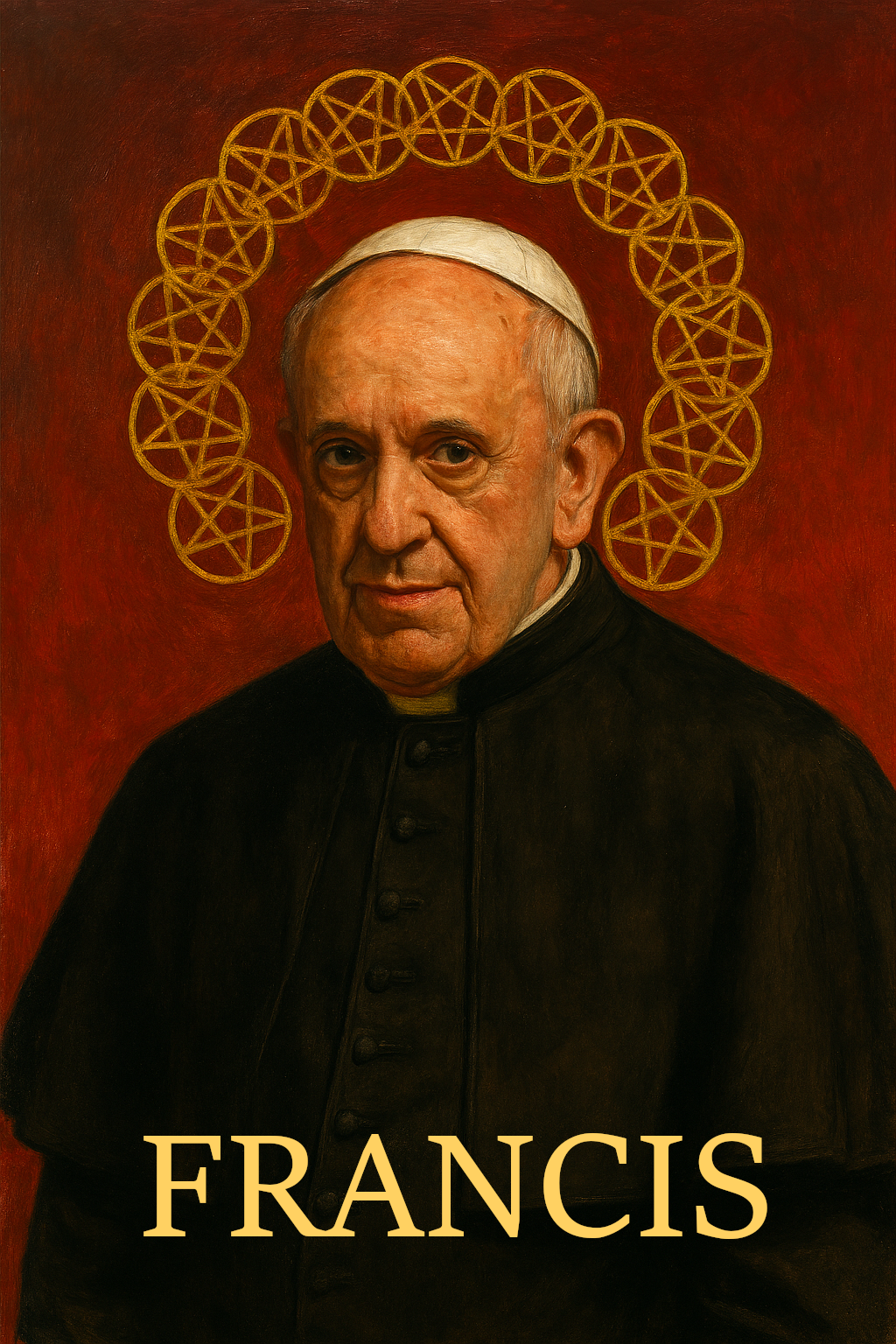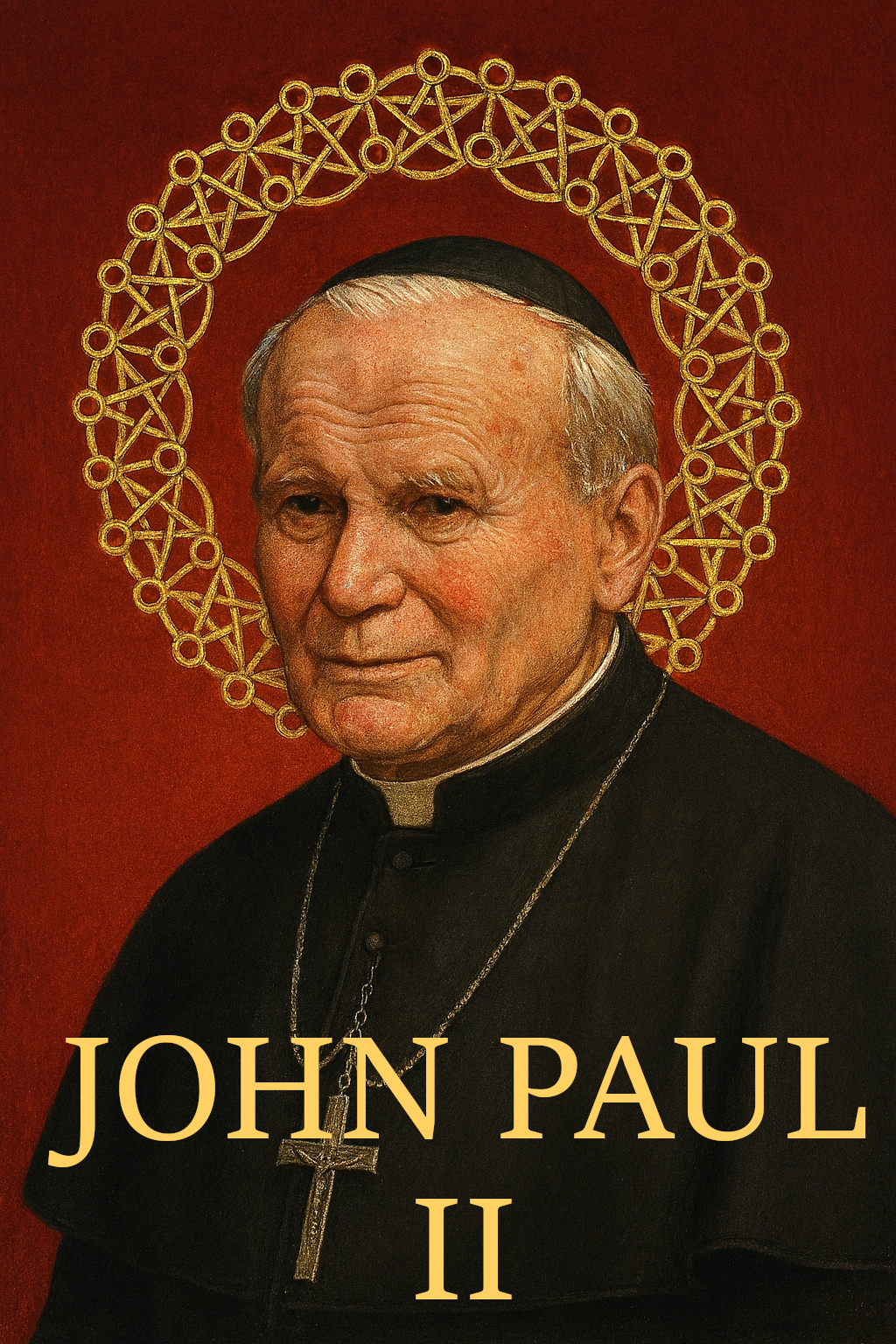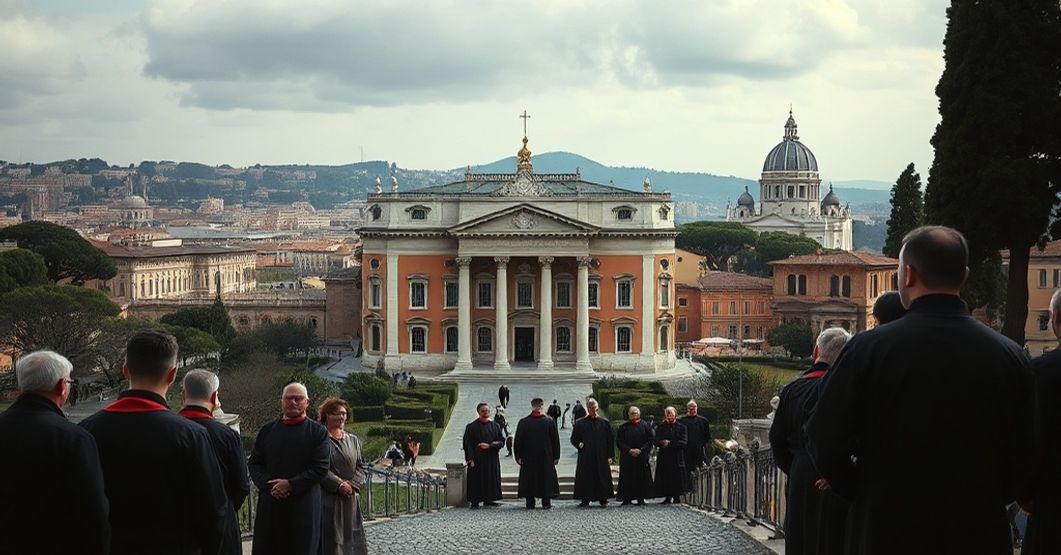Antipopes of the Antichurch



















Timeline of this heretical pontiff
Encyclical Letters
+ 15 posts1959
+ 7 posts1961
+ 4 posts1962
+ 2 posts1963
+ 2 postsApostolic Exhortations
+ 3 postsApostolic Constitutions
+ 93 posts1958
+ 6 posts1959
+ 87 postsMotu Proprio
+ 15 posts1958
+ 1 posts1959
+ 1 posts1962
+ 11 postsApostolic Letters
+ 151 posts1958
+ 4 posts1959
+ 63 posts1960
+ 78 posts1961
+ 1 posts1962
+ 4 posts1963
+ 1 postsSpeeches
+ 99 posts1958
+ 2 posts1959
+ 26 posts1960
+ 29 posts1961
+ 16 posts1962
+ 24 postsMessages
+ 6 posts1959
+ 4 postsHomilies
+ 4 postsLetters
+ 152 posts1958
+ 1 posts1959
+ 48 posts1960
+ 32 posts1961
+ 31 posts1962
+ 30 posts1963
+ 10 postsNot categorized
+ 1 posts1958
+ 1 postsNews feed


Benevolentiae caritatis (1959.11.29)
The text titled “Benevolentiae caritatis” (29 November 1959) is a short congratulatory letter in Latin by John XXIII addressed to Cardinal Jacopo (Iacobus Aloisius) Copello on the occasion of his 80th birthday. It praises Copello’s long life, recalls divine benefits allegedly shed upon him, commends his past governance of the Buenos Aires church, notes his elevation to the cardinalate by Pius XI, and compliments him for his current role as Chancellor of the Roman Church, concluding with wishes and an “apostolic blessing.”


Apostolici muneris (1959.11.29)
In this Latin letter dated 29 November 1959, John XXIII replies to the collective correspondence of German hierarchy assembled at Fulda. He congratulates them on their pastoral initiatives, praises the exposition of the Holy Tunic of Trier and the forthcoming Munich International Eucharistic Congress, extols charitable and “Diaspora” works, encourages efforts toward those “separated” from the Church, links all this to his announced “ecumenical council,” and concludes with paternal exhortations and a blessing. Behind the pious phraseology and sentimental invocations of unity, this text already manifests the programmatic dissolution of the Catholic religion into a naturalistic, ecumenical, and conciliatory project preparing the conciliar revolution.


Quinquagesimum natalem sacerdotii (1959.11.28)
The document is a Latin congratulatory letter in which John XXIII, acting as “pope,” flatters Pietro Ciriaci on the fiftieth anniversary of his priestly ordination, praising his Roman academic career, curial service, diplomatic missions in Czechoslovakia and Portugal, and his role as prefect in charge of interpreting the Tridentine decrees. It is an exercise in courtly mutual admiration that presents human merit, bureaucratic success, and concordat diplomacy as the measure of ecclesial fruitfulness and concludes with an “apostolic blessing” as a seal over this purely horizontal eulogy. In one page it condenses the self-referential, naturalistic, and personality‑cult ethos of the conciliar revolution that would soon devastate the visible structures of the Church.


A A A La Ioannes XXIII (1959.08.28)
In this short Latin epistle dated 28 August 1959, John XXIII congratulates the rector Martin John O’Connor and the Pontifical North American College in Rome on the centenary of its foundation. He recalls with satisfaction the college’s fruits for the hierarchy of the United States, praises benefactors and alumni, highlights the symbolic importance of the new building on the Janiculum, and extols Rome as the privileged place for priestly formation near the Chair of Peter. The letter culminates in pious wishes that the college continue to form clergy of learning, virtue, and zeal for the good of the Church and the homeland, ending with his “Apostolic Blessing.”
Varia
Announcement:
– News feed –implemented
– Antipopes separate web sites with their all documents refutation – in progress
